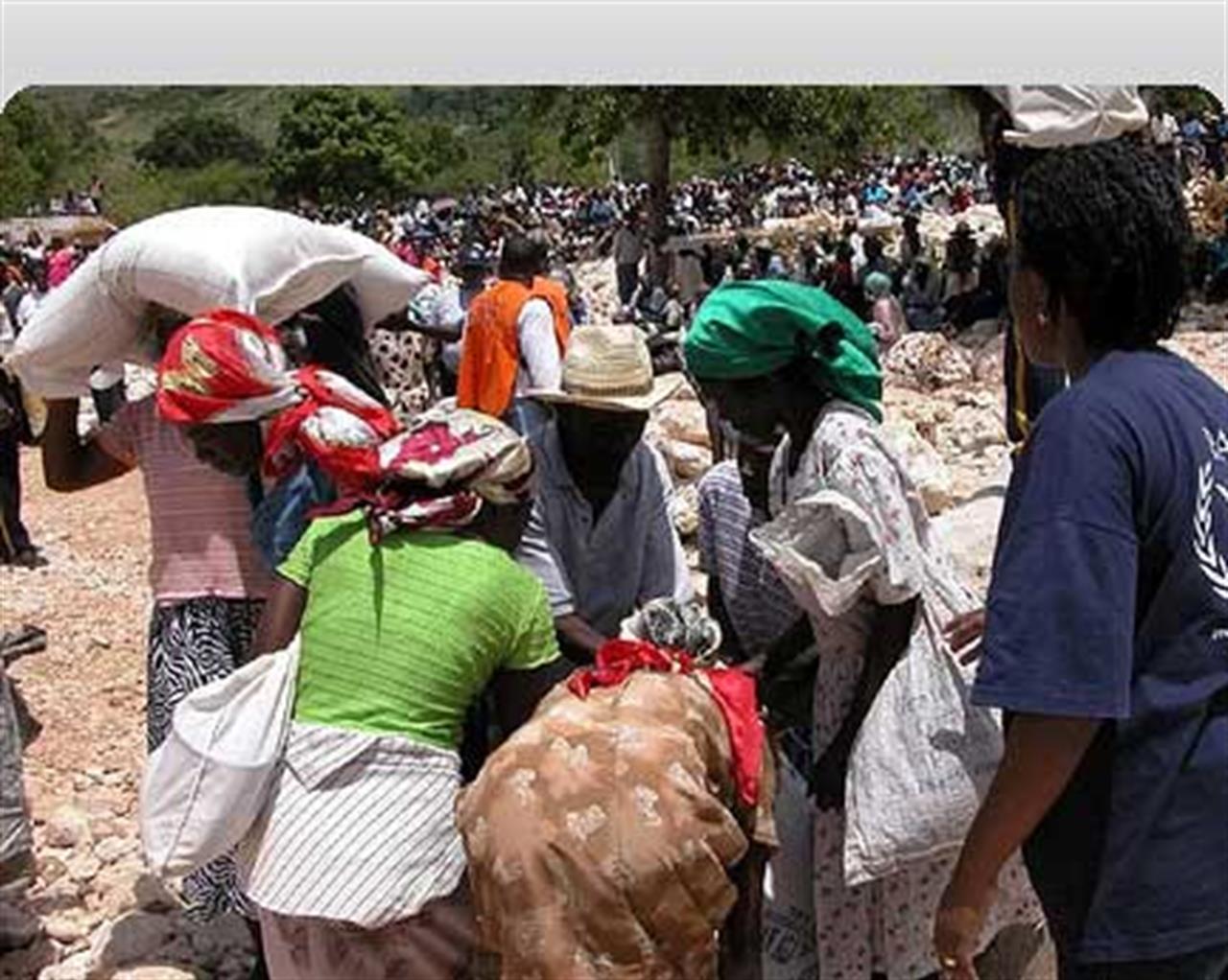Non profit
“Backbone” to the community
Special report from the ground in Haiti in occasion of the 100th international women's day on March 8
di Staff

The Church World Service reports.
As the global community honors the work, struggles and achievements of women on International Women’s Day, March 8, one way to spotlight the status of women is to look at recovery efforts underway in earthquake-stricken Haiti.
To women like Saint Elene Alcidonis, 52, newly widowed and the mother of seven children, ages 10 to 24, the immediate issue is how to take care of families in crowded displacement camps. Alcidonis’ case is typical of many people in the camps: Alcidonis’ late husband, Jean-Claude Bien-Aime, 53, a mason and carpenter who perished in the quake, was the principal breadwinner in the family.
Without homes to return to and the loss of spouses, many do not know what the long-term or even immediate future holds.
“It could be months, I don’t know what to expect,” Alcidonis told CWS staffer Chris Herlinger recently as she prepared morning coffee in one of the many displacement camps in Port-au-Prince – camps where Church World Service Blankets, Hygiene and Baby Kits are being used by quake survivors. “There are so many to take care of.”
Alcidonis’ short-term concern is survival – she is going to have to care for her family. In the long-term, humanitarian response like that being provided by CWS needs to be based on “resources that will help her and other women gain the skills and support necessary to do so,” said Donna Derr, who coordinates emergency response for CWS. “We’ve been doing it in Haiti and around the world for decades.”
Of course, there are immediate pressures being felt by female survivors of the quake. Women, as well as children, face particular risks because of security fears – worries that displacement camps are risky places because of the growing number of sexual assaults.
Given those concerns, humanitarian responders – like the CWS-supported ACT Alliance working in Haiti – must be vigilent and act as advocates for women and children in an increasingly insecure environment, said Anna Olivier, a humanitarian worker with ACT member Norwegian Church Aid. Women and children, she said, are particularly vulnerable and as a result require services especially keyed to their needs.
Current CWS-supported efforts in Haiti include programs to assist female-headed households, building on already-existing programs, such as those by Viva Rio, a Brazilian organization which works in Greater Bel Air, a particularly violent section of Port-au-Prince.
Viva Rio has made the issue of security of women a focus of its work; as one example, prior to the quake, it was part of a consortium of organizations that successfully advocated for establishing a police station in Bel Air that responds to sexual assault and domestic violence cases.
Another group working with NCA is Mouvement des Femmes de Cité Soleil, known by the acronym MOFECS, a grassroots group that provides psychosocial support for women and girls, as well as organizing girls’ clubs and seminars and trainings for females.
Rose-Anne Auguste, a Haitian who heads the ACT-supported Association for the Promotion of Integral Family Healthcare, known by the Creole acronym APROSIFA and whose clinic has received IMA medical boxes shipped to Haiti by CWS, said the work focused on women is necessary, particularly given current conditions in Haiti.
“Yes, we are concerned about the rise of sexual violence,” Auguste told Herlinger, though noting that the APROSIFA had treated female rape survivors long before the quake.
Unfortunately, violence is a part of any post-disaster landscape. “People are traumatized and we know how people react in these type of situations,” said Sylvia Raulo, country representative in Haiti for ACT/Lutheran World Federation and one of those coordinating initial CWS-supported relief efforts in Haiti.
Raulo’s work and the work of Haitian and non-Haitian female humanitarian workers in the CWS-supported response in Haiti is another way of spotlighting the contribution of women — especially when media images so often convey the idea that humanitarian work is performed by men.
“Women are humanitarian responders in Haiti; they are also in many cases the backbone of their communities and families,” Derr said. “Their gifts must be front and center for any kind of humanitarian response and development efforts.”
Si può usare la Carta docente per abbonarsi a VITA?
Certo che sì! Basta emettere un buono sulla piattaforma del ministero del valore dell’abbonamento che si intende acquistare (1 anno carta + digital a 80€ o 1 anno digital a 60€) e inviarci il codice del buono a abbonamenti@vita.it
